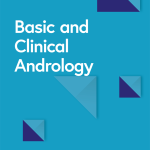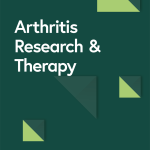Olsson AG, Schwartz GG, Szarek M, Sasiela WJ, Ezekowitz MD, et al. High-density lipoprotein, but not low-density lipoprotein cholesterol levels influence short-term prognosis after acute coronary syndrome: results from the MIRACL trial. Eur Heart J. 2005;26(9):890–6.
Di Angelantonio E, Chowdhury R, Sarwar N, Ray KK, Gobin R, et al. B-type natriuretic peptides and cardiovascular risk: systematic review and meta-analysis of 40 prospective studies. Circulation. 2009;120(22):2177–87.
Marques LR, Diniz TA, Antunes BM, Rossi FE, Caperuto EC, et al. Reverse Cholesterol Transport: Molecular Mechanisms and the Non-medical Approach to Enhance HDL Cholesterol. Front Physiol. 2018;9:526.
Guo X, Ma L. Inflammation in coronary artery disease-clinical implications of novel HDL-cholesterol-related inflammatory parameters as predictors. Coron Artery Dis. 2023;34(1):66–77.
Soo J, Kubzansky LD, Chen Y, Zevon ES, Boehm JK. Psychological well-being and restorative biological processes: HDL-C in older English adults. Soc Sci Med. 2018;209:59–66.
Kobau R, Seligman ME, Peterson C, Diener E, Zack MM, et al. Mental health promotion in public health: perspectives and strategies from positive psychology. Am J Public Health. 2011;101(8):e1-9.
Boehm JK, Kubzansky LD. The heart’s content: the association between positive psychological well-being and cardiovascular health. Psychol Bull. 2012;138(4):655–91.
Radler BT, Rigotti A, Ryff CD. Persistently high psychological well-being predicts better HDL cholesterol and triglyceride levels: findings from the midlife in the U.S. (MIDUS) longitudinal study. Lipids Health Dis. 2018;17(1):1.
Boehm JK, Williams DR, Rimm EB, Ryff C, Kubzansky LD. Relation between optimism and lipids in midlife. Am J Cardiol. 2013;111(10):1425–31.
Kotera Y, Fido D. Ikigai: Towards a psychological understanding of a life worth living. Concurrent Disorders Society Press; 2021.
Levine GN, Cohen BE, Commodore-Mensah Y, Fleury J, Huffman JC, et al. Psychological health, well-being, and the mind-heart-body connection: a scientific statement from the American heart association. Circulation. 2021;143(10):e763–83.
Hasegawa A. Exploring the possibilities of spiritual care from the Japanese concept of “Ikigai”: an overview of research on “Ikigai” from 2015 to 2021, domestic and international research trends since 1945, and a perspective for future research developments (in Japanese). Annu Inst Life Death Stud Toyo Eiwa Univ. 2022;18:145–89.
García H, Martín C. Ikigai: The Japanese secret to a long and happy life. London: Hutchinson; 2017.
Miyazaki J, Shirai K, Kimura T, Ikehara S, Tamakoshi A, et al. Purpose in life (Ikigai) and employment status in relation to cardiovascular mortality: the Japan collaborative cohort study. BMJ Open. 2022;12(10):e059725.
Kumano M. On the concept of well-being in Japan: feeling Shiawase as hedonic well-being and feeling Ikigai as Eudaimonic well-being. Appl Res Qual Life. 2018;13(2):419–33.
Steptoe A, Deaton A, Stone AA. Subjective wellbeing, health, and ageing. Lancet. 2015;385(9968):640–8.
Sone T, Nakaya N, Ohmori K, Shimazu T, Higashiguchi M, et al. Sense of life worth living (ikigai) and mortality in Japan: Ohsaki study. Psychosom Med. 2008;70(6):709–15.
Koizumi M, Ito H, Kaneko Y, Motohashi Y. Effect of having a sense of purpose in life on the risk of death from cardiovascular diseases. J Epidemiol. 2008;18(5):191–6.
Tanno K, Sakata K, Ohsawa M, Onoda T, Itai K, et al. Associations of ikigai as a positive psychological factor with all-cause mortality and cause-specific mortality among middle-aged and elderly Japanese people: findings from the Japan collaborative cohort study. J Psychosom Res. 2009;67(1):67–75.
Rozanski A, Blumenthal JA, Davidson KW, Saab PG, Kubzansky L. The epidemiology, pathophysiology, and management of psychosocial risk factors in cardiac practice: the emerging field of behavioral cardiology. J Am Coll Cardiol. 2005;45(5):637–51.
Ghiadoni L, Donald AE, Cropley M, Mullen MJ, Oakley G, et al. Mental stress induces transient endothelial dysfunction in humans. Circulation. 2000;102(20):2473–8.
Licht CM, Vreeburg SA, van Reedt Dortland AK, Giltay EJ, Hoogendijk WJ, et al. Increased sympathetic and decreased parasympathetic activity rather than changes in hypothalamic-pituitary-adrenal axis activity is associated with metabolic abnormalities. J Clin Endocrinol Metab. 2010;95(5):2458–66.
Pasquali R. The hypothalamic-pituitary-adrenal axis and sex hormones in chronic stress and obesity: pathophysiological and clinical aspects. Ann N Y Acad Sci. 2012;1264(1):20–35.
Won E, Kim YK. Stress, the autonomic nervous system, and the immune-kynurenine pathway in the etiology of depression. Curr Neuropharmacol. 2016;14(7):665–73.
Luppino FS, van Reedt Dortland AK, Wardenaar KJ, Bouvy PF, Giltay EJ, et al. Symptom dimensions of depression and anxiety and the metabolic syndrome. Psychosom Med. 2011;73(3):257–64.
Siegler IC, Peterson BL, Barefoot JC, Williams RB. Hostility during late adolescence predicts coronary risk factors at mid-life. Am J Epidemiol. 1992;136(2):146–54.
Okaze K. [Ikigai and mental health among working-age men and women -focusing on class, life events, and asset building-] genekisedai danjo no ikigai to mental health- kaisou, life event, shisankeisei ni chumokushite- (in Japanese). Nenkinkenkyu. 2022;19:54–83.
Shirai K, Iso H, Fukuda H, Toyoda Y, Takatorige T, et al. Factors associated with “Ikigai” among members of a public temporary employment agency for seniors (Silver Human Resources Centre) in Japan; gender differences. Health Qual Life Outcomes. 2006;4:12.
Ko SH, Kim HS. Menopause-Associated Lipid Metabolic Disorders and Foods Beneficial for Postmenopausal Women. Nutrients. 2020;12(1):202.
Yamagishi K, Muraki I, Kubota Y, Hayama-Terada M, Imano H, et al. The Circulatory Risk in Communities Study (CIRCS): a long-term epidemiological study for lifestyle-related disease among Japanese men and women living in communities. J Epidemiol. 2019;29(3):83–91.
Ikeda S, Ikeda A, Yamagishi K, Hori M, Kubo S, et al. Longitudinal trends in blood pressure associated with the frequency of laughter: the Circulatory Risk in Communities Study (CIRCS), a longitudinal study of the Japanese general population. J Epidemiol. 2021;31(2):125–31.
Imano H, Noda H, Kitamura A, Sato S, Kiyama M, et al. Low-density lipoprotein cholesterol and risk of coronary heart disease among Japanese men and women: the Circulatory Risk in Communities Study (CIRCS). Prev Med. 2011;52(5):381–6.
Imano H, Kitamura A, Sato S, Kiyama M, Ohira T, et al. Trends for blood pressure and its contribution to stroke incidence in the middle-aged Japanese population: the Circulatory Risk in Communities Study (CIRCS). Stroke. 2009;40(5):1571–7.
Eshak ES, Baba S, Yatsuya H, Iso H, Hirakawa Y, et al. Work and family conflicts, depression, and “Ikigai”: a mediation analysis in a cross-cultural study between Japanese and Egyptian civil workers. J Epidemiol. 2023;33(7):360–6.
Yasukawa S, Eguchi E, Ogino K, Tamakoshi A, Iso H. “Ikigai”, subjective wellbeing, as a modifier of the parity-cardiovascular mortality association-the Japan collaborative cohort study-. Circ J. 2018;82(5):1302–8.
Nakamura M, Sato S, Shimamoto T. Improvement in Japanese clinical laboratory measurements of total cholesterol and HDL-cholesterol by the US cholesterol reference method laboratory network. J Atheroscler Thromb. 2003;10(3):145–53.
Mitchell PH, Powell L, Blumenthal J, Norten J, Ironson G, et al. A short social support measure for patients recovering from myocardial infarction: the ENRICHD social support inventory. J Cardiopulm Rehabil. 2003;23(6):398–403.
Ryff CD, Dienberg Love G, Urry HL, Muller D, Rosenkranz MA, et al. Psychological well-being and ill-being: do they have distinct or mirrored biological correlates? Psychother Psychosom. 2006;75(2):85–95.
Fido D, Kotera Y, Asano K. English translation and validation of the Ikigai-9 in a UK sample. Int J Ment Health Ad. 2020;18(5):1352–9.
Santos V, Paes F, Pereira V, Arias-Carrión O, Silva AC, et al. The role of positive emotion and contributions of positive psychology in depression treatment: systematic review. Clin Pract Epidemiol Ment Health. 2013;9:221–37.
Lehto SM, Hintikka J, Niskanen L, Tolmunen T, Koivumaa-Honkanen H, et al. Low HDL cholesterol associates with major depression in a sample with a 7-year history of depressive symptoms. Prog Neuropsychopharmacol Biol Psychiatry. 2008;32(6):1557–61.
Lindfors P, Lundberg U. Is low cortisol release an indicator of positive health? Stress Health. 2002;18(4):153–60.
Steptoe A, Wardle J, Marmot M. Positive affect and health-related neuroendocrine, cardiovascular, and inflammatory processes. Proc Natl Acad Sci U S A. 2005;102(18):6508–12.
Ryff CD, Singer BH, Dienberg LG. Positive health: connecting well-being with biology. Philos Trans R Soc Lond B Biol Sci. 2004;359(1449):1383–94.
Kuo T, McQueen A, Chen TC, Wang JC. Regulation of glucose homeostasis by Glucocorticoids. Adv Exp Med Biol. 2015;872:99–126.
Wilkes J, Garip G, Kotera Y, Fido D. Can Ikigai predict anxiety, depression, and well-being? Int J Ment Health Addiction. 2023;21(5):2941–53.
LeFebvre A, Huta V. Age and gender differences in eudaimonic, hedonic, and extrinsic motivations. J Happiness Stud. 2001;22(5):2299–321.
Shirai K, Iso H, Ohira T, Ikeda A, Noda H, et al. Japan public health center-based study group. Perceived level of life enjoyment and risks of cardiovascular disease incidence and mortality: the Japan public health center-based study. Circulation. 2009;120(11):956–63.
Shi X, Li Y, Sun L, Yu Y, Zhou S. Gender differences in the subjective well-being of older adult learners in China. Front Psychol. 2022;13:1043420.
Hobfoll SE, Dunahoo CL, Ben-Porath Y, Monnier J. Gender and coping: the dual-axis model of coping. Am J Community Psychol. 1994;22(1):49–82.
Iso H, Date C, Yamamoto A, Toyoshima H, Tanabe N, et al. Perceived mental stress and mortality from cardiovascular disease among Japanese men and women: the Japan collaborative cohort study for evaluation of cancer risk sponsored by Monbusho (JACC study). Circulation. 2002;106(10):1229–36.
Teramura S, Sankai T, Yamagishi K, Umesawa M, Hayama-Terada M, et al. Changes in cardiovascular disease risk factors during menopausal transition in Japanese women: the Circulatory Risk in Communities Study (CIRCS). Menopause. 2023;30(1):88–94.
Koebnick C, Garcia AL, Dagnelie PC, Strassner C, Lindemans J, et al. Long-term consumption of a raw food diet is associated with favorable serum LDL cholesterol and triglycerides but also with elevated plasma homocysteine and low serum HDL cholesterol in humans. J Nutr. 2005;135(10):2372–8.
Schwingshackl L, Hoffmann G. Comparison of effects of long-term low-fat vs high-fat diets on blood lipid levels in overweight or obese patients: a systematic review and meta-analysis. J Acad Nutr Diet. 2013;113(12):1640–61.
Ruiz-Ramie JJ, Barber JL, Sarzynski MA. Effects of exercise on HDL functionality. Curr Opin Lipidol. 2019;30(1):16–23.
Oakes M, Kaufman JS. Methods in Social Epidemiology. Hoboken: Jossey-Bass; 2017.
Tsujishita S, Nagamatsu M, Imai A, Sanada K. Relationships between locomotive and non-locomotive MVPA and ‘ikigai’in older Japanese adults. PeerJ. 2023;11:e15413.
Kato Y, Kojima A, Hu C. Relationships between IKIGAI well-being and motivation for autonomous regulation of eating and exercise for health—included the relevance between sense of coherence and social support. Int J Behav Med. 2023;30(3):376–87.
Kodama S, Fujii N, Furuhata T, Sakurai N, Fujiwara Y, Hoshi T. Dietary quality and its structural relationships among equivalent income, emotional well-being, and a five-year subjective health in Japanese middle-aged urban dwellers. Arch Public Health. 2015;73(1):30.
Sanllorente A, Lassale C, Soria-Florido MT, Castañer O, Fitó M, et al. Modification of high-density lipoprotein functions by diet and other lifestyle changes: a systematic review of randomized controlled trials. J Clin Med. 2021;10(24):5897.






Add Comment